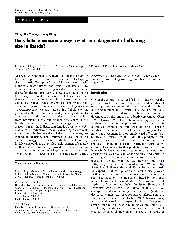摘要
An experimental reduction of offspring number has been reported to result in enlargement of offspring size in lizards. We applied the "follicle excision" technique to a lacertid lizard (Takydromus septentrionalis) to examine whether this effect is generalisable to lizards. Of the 82 females that produced 3 successive clutches in the laboratory, 23 females underwent follicle excision after they oviposited the first clutch. Follicle excision reduced clutch size, but did not alter egg size. This result indicates that egg size is not altered during vitellogenesis in T. septentrionalis. Females undergoing follicle excision produced a third clutch (a second post-surgical clutch) as normally as did control females. Females switched from producing more but smaller eggs early in the breeding season to fewer but larger eggs later in the season. Our results indicate that female T. septentrionalis maximize reproductive success by diverting an optimal, rather than a higher, fraction of the available energy to individual offspring. This optimized allocation of the available energy to offspring production explains why follicle excision does not result in enlargement of egg size in this species. Our study provides evidence that an experimental reduction of offspring number does not always result in enlargement of offspring size in lizards.
